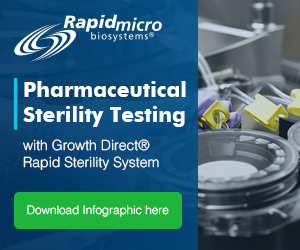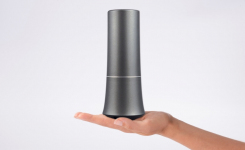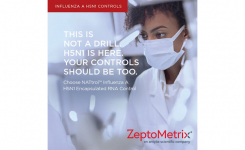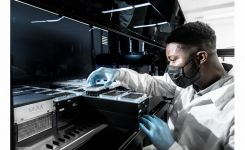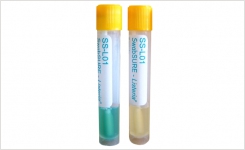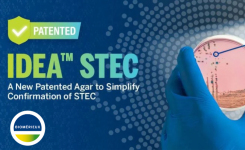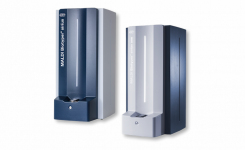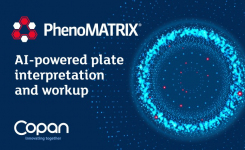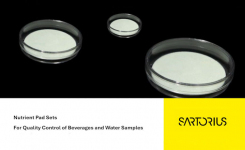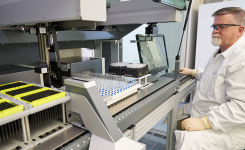Improved detection of Clostridium perfringens in water samples
go back to news archives
| Thermo Scientific Limited has extended their range of products for testing the microbiological quality of water with the addition of new m-CP Medium - a selective, chromogenic medium for the rapid identification and enumeration of Clostridium perfringens in water samples. Compared to traditional methods, m-CP Medium provides faster results with increased selectivity and specificity. |
| The new Thermo Scientific m-CP Medium is designed to improve the differentiation of Cl. perfringens from other clostridial species and background flora. |
Source : Thermo Scientific. View archived contact details
Posted on September 9, 2002



